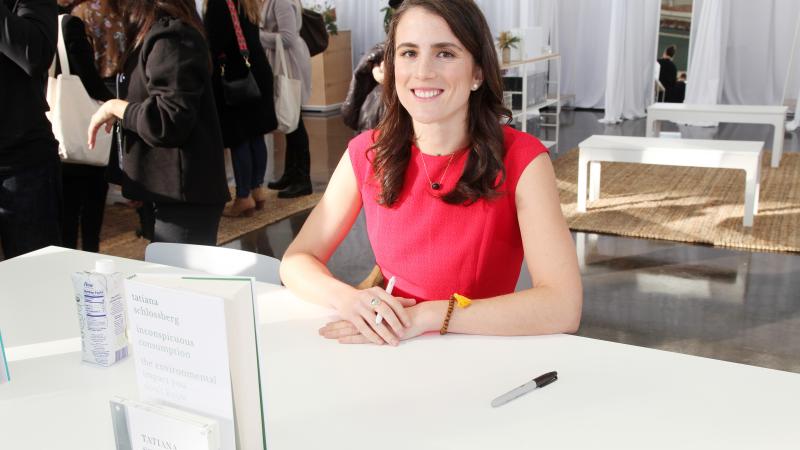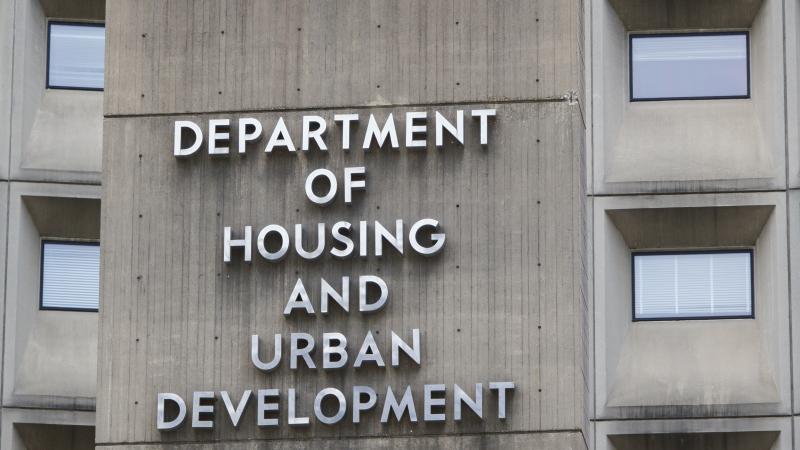Hydroxychloroquine: Politicizing Medicine

Separating fact from spin when it comes to hydroxychloroquine's representation in the media.
The discussion about hydroxycholoroquine has been so politicized in the media, that it’s hard to separate fact from spin. But we do that today.
We also talk to a leading scientist, Dr. William O'Neill, whose institution is studying both hydroxycholoroquine and another medicine, Remdesivir, to treat coronavirus.
Subscribe to my two podcasts: “The Sharyl Attkisson Podcast” and “Full Measure After Hours.” Leave a review, subscribe and share with your friends!
Order “Slanted: How the News Media Taught Us to Love Censorship and Hate Journalism” by Sharyl Attkisson at Harper Collins, Amazon, Barnes & Noble, Books a Million, IndieBound, Bookshop!
Visit JustTheNews.com, SharylAttkisson.com and www.FullMeasure.news for original reporting.
Do your own research. Make up your own mind. Think for yourself.
Full transcript:
Sharyl Attkisson 0:08
Hi everybody Sharyl Attkisson here. Welcome to another edition of the Sharyl Attkisson Podcast on Just the News.com, a digital news site dedicated to facts, not spin, and reporting on views that cut across the grain or are ignored by other media outlets. I hope you'll subscribe to all of our Just the News podcasts including John Solomon Reports, and the Pod's Honest Truth. Also, preorder my new book "Slanted: How the News Media Taught us to Love Censorship and Hate Journalism." Today together, you and I are going to dig deep and expose some underreported facts about what's become a political media battle over two drugs being studied to use for Coronavirus, the anti malaria pill hydroxychloroquine and the Ebola IV drug Remdesivir.
Sharyl Attkisson 0:56
I'm going to try to break all of this down in fairly simple terms. But with quite a bit of detail, and we'll begin by naming the two drugs we're going to talk about today they've gotten a lot of attention as medicines that could effectively treat Coronavirus. The first is hydroxychloroquine. That's an anti malaria pill that's been on the market for decades. It's also getting attention, by the way, as a drug that might more importantly prevent Coronavirus, not just treat it, and the second drug is Remdesivir. That's an IV drug that was invented to treat Ebola patients but it was never ultimately approved or used for any purpose, because it turned out that other medicines were deemed more effective in treating Ebola. As we talk, I'm going to refer you to some resources. So you can look into all of this more if you like, because I don't know which drug is better or worse or if either of them works at all, but neither do the media who are advocating so hard for or against one or the other, which is what really caught my attention.
Sharyl Attkisson 1:59
Neither drug has been FDA approved to treat Coronavirus. Both of them have respected names in science who see hope in them but these two drugs have not been treated the same in the media, in case you didn't notice. When early studies showed some good news for hydroxychloroquine, and also some doctors noticed that people taking it for other reasons weren't getting Coronavirus, it seemed at the same rate as others, and also there was a small French study that had success in using hydroxychloroquine to treat Coronavirus patients, President Trump touted it and purchased millions of doses to have on hand he said in case it works and said that if it works, it could be a game changer.
Sharyl Attkisson 2:41
Let's look at some of the publications behind what I just said. On March 18, there was an article in The Lancet, medical journal, and you can find that if you search online use of antiviral drugs to reduce COVID-19 transmission. In this Lancet article it mentions the China's studies that had some positive findings about hydroxychloroquine. As for the French study that had some positive results, you can search for that, that was March 20, when it was published, and did the title hydroxychloroquine and azithromycin as a treatment of COVID-19. I find even if I spell some of the words wrong or don't have all the words that will usually show up in a search anyway, so again, this is a study in France. And the title was "Hydroxychloroquine and Azithromycin as a Treatment of COVID-19: Results of an Open Label Non Randomized Clinical Trial."
Sharyl Attkisson 3:39
Well, so these things came out wasn't particularly controversial that these initial studies had some good news for hydroxychloroquine. But it wasn't long before there was an organized effort to disparage President Trump and hydroxychloroquine. And it started to become hard to feel like you're getting all the facts on the news because many doctors were using hydroxychloroquine to treat Coronavirus patients, as they were legally entitled to do because as it's an approved drug already on the market for malaria and lupus, doctors can use it for other purposes off label and they were reporting some success in using it on Coronavirus patients, particularly when it was given to them early before they were very, very sick.
Sharyl Attkisson 4:24
But a paper came out online about veterans getting treated with hydroxychloroquine. And there were reports from this paper and others that started to make hydroxychloroquine sound dangerous like it could cause some heart problems and that more vets who were given hydroxychloroquine by the Veterans Administration, said this paper, died than the ones who didn't so you know, the media said this big hope that President Trump had looked at was actually potentially dangerous. Some started to imply or even state that it was quackery, you can read about that VA paper in a medscape article at medscape.com but you can just search for on April 23 hydroxychloroquine ineffective for COVID-19 VA study suggests, hydroxychloroquine ineffective for COVID-19 VA study suggests. So the answer proclaimed many in the media and some public health experts if it wasn't hydroxychloroquine.
Sharyl Attkisson 5:30
The big hope they said could be found in a different drug, a new drug, not a pill like hydroxychloroquine, one that's been on the market for decades, but an IV drug called Remdesivir that's never been approved for any purpose. And there were a couple of early studies and some data about this drug as well. A draft study that was accidentally published show that Remdesivir was not effective in treating Coronavirus patients. And in fact, the draft of this study said that 18 patients had to be taken off Remdesivir due to side effects. The maker Remdesivir said that the reason they stopped this study never finished and the study was never supposed to be published was because they were not able to get enough test subjects, enough volunteers to take part in the study and they said these negative findings were really out of context. But that was again a draft study that was accidentally published by the World Health Organization that Gilead says was never meant to be published that showed some negative results for Remdesivir.
Sharyl Attkisson 6:30
There were other data. For example, Dr. Fauci of the White House Coronavirus Task Force pointed to some early data about Remdesivir that showed that while it did not have what they call a mortality or survival benefit, some people in this data got better when taking Remdesivir, got better four days earlier. So he said that this was very important and could be something very positive. You can find more information on that the early data showing people getting better for days. earlier if you look at medscape.com again, there's an article May 1 that says, Fauci says leak concerns fueled his White House revelation of Gilead drug results, sort of a complicated title. But I think if you get most of those words, around May 1, you'll find this article again. Fauci says leaked concerns fueled his White Wouse revelation of Gilead drug results. So there were these sort of contradictory findings, some good some bad on both drugs, but a lot of sentiment leaning toward Remdesivir.
Sharyl Attkisson 7:34
So meantime, many scientists that I was talking to you behind the scenes kept telling me follow the money follow the money, and I did so let me just give a couple of background facts. If Remdesivir is used. It has to be administered in a special setting to sick patients, probably in the hospital because it is an IV and it is going to be by all accounts and expensive drug. It's a new drug. There are no generics it's an IV drug, Gilead I will note his said it is donating its entire stock initially, but down the road. Again, scientists say this is not going to be an easily affordable drug. Perhaps the government would cover the cost, which actually means you and me when government covers the cost and make something free. On the other hand, if we are lucky enough to have hydroxychloroquine turned out to be something that works. It's cheap. Nobody makes a lot of money. It's a pill. One scientists told me you can get it for seven cents a pill. I've seen figures of 33 cents a pill compared to $1,000 or more they're saying for the Gilead treatment. The hydroxychloroquine is generally it's thought if it's given early, that's when it's most effective and that it may even prevent they call it prophylaxis, that may prevent Corona virus, which is a big deal because looking at it that way if hydroxychloroquine works, it kind of takes away a lot of the market that Remdesivir would have because people wouldn't get sick enough to get in the hospital and need the Remdesivir.
Sharyl Attkisson 9:04
So there is, I think you could say competition between these drugs, but the big money is backing them disappear because there's a lot of money to be made by it. There's not a lot of big money backing hydroxychloroquine because it's a pill that's been around for so long, made by a lot of generic companies. And I read an analysis that said, even if it works, and were to be widely prescribed, it would not be a big factor in terms of financials for the companies that make it. So again, I'll say it's important to note that neither drug is approved by the FDA right now to treat Coronavirus. In fact, Gilead points out the Remdesivir has not been approved by the FDA for any purpose. It does have an emergency designation that allows certain emergency uses in certain settings. Meantime, the FDA and a government panel that recommends Coronavirus treatments have taken action that I guess you could say dialed back on use of hydroxychloroquine recommending that it only be used in certain strict settings such as a hospital setting or as part of a clinical study or with strict monitoring, which meant the doctors across the country that were sort of anecdotally using this on their patients and said they were finding some success, we're now being told dial back on that use that there could be some potential dangers that are turning up, we don't think it's a good idea.
Sharyl Attkisson 10:25
And in effect that put hydroxychloroquine kind of on even footing with Remdesivir, because remember, I said him disappear as an IV drug that's given in the hospital to someone who's sick hydroxychloroquine was being given, you know, by pretty much any doctor that wanted to prescribe it. You don't have to be that sick and you don't even have to be in the hospital. So now the two drugs were kind of on equal footing with hydroxychloroquine being dialed back to similar terms as Remdesivir, but I guess Remdesivir even got an advantage because they got a special emergency designation that encouraged use in certain settings beyond what was being encouraged for hydroxychloroquine. So talking about following the money, I looked at the panel, the government advisory panel that was making these recommendations and I checked the financial ties among the experts devising the Coronavirus treatment guidelines, which as I said dialed back on hydroxychloroquine use and gave the edge to Remdesivir, and I found that of 11 members who reported links to a drug company nine of them named financial relationships to Remdesivir's maker Gilead seven more, including two of the committee's leaders have ties to Gilead beyond the 11 months that they had to disclose, two of them were on GIlead advisory board. Remember this is the company that makes remdesivir. Others served as paid consultants to Gilead or received research support and honoraria from the company which is not unusual. A lot of public health officials and physicians and academic research have ties to pharmaceutical companies. But what was interesting to me is that so many of them reported ties to Gilead, nobody reported ties to hydroxychloroquine, which as I mentioned, is now made by numerous generic manufacturers and is so cheap that even a spike in sales would supposedly not be a financial driver for the companies.
Sharyl Attkisson 12:21
if you want to look at an article about that the financial analysis, you can find an article at barrons.com but just search for companies plan to boost production of controversial malaria drug as demand jumps that was from March 24. Again, this is the article with some financial analysis as to what would happen if a lot of people order hydroxychloroquine. If it turns out to work, the article companies plan to boost production of controversial malaria drug as demand jumps. You can see more on all of this because I'm doing a story that flushes some of it out. Additional facts on Full Measure.news Sunday morning. 17th is when it airs. If you miss it on TV, you can go to Full Measure.news probably anytime about after noon eastern time and see the story which will be posted there. And I think you'll be interested in hearing more and actually hearing from some of the scientists that I spoke to about this again that Sunday, May 17. You can find that online at Full Measure.news if you miss it on TV. Next, an important interview with a scientist whose institution is working with both remdesivir and hydroxychloroquine.
Sharyl Attkisson 13:37
We're back Next you're going to hear my interview with Dr. William O'Neal, whose research institution is conducting clinical trials of both Remdesivir and hydroxychloroquine. He's Medical Director for the Center for structural heart disease at the Henry Ford Health System in Detroit, Michigan. He is a practicing interventional and structural cardiologist which makes him a great person to ask about the supposed that flaws or weaknesses of hydroxychloroquine. Its critics have been concerned about heart issues that it could create, which is one of the big reasons why it was criticized, particularly in that veterans administration paper that said, more vets who were treated with hydroxychloroquine died. Dr. O'Neill has been doing clinical trials for 40 years. He was one of the pioneers of using angioplasty for the treatment of heart attacks. He's got 450 peer reviewed articles. He's written over 50 Medical book chapters, and edited three textbooks. So here's Dr. O'Neill.
Sharyl Attkisson 14:40
In simple terms. Can you tell me about the study that you're conducting right now?
Dr. O'Neill 14:44
Yes, we're looking at a drug called hydroxychloroquine as a preventative therapy for people that are exposed or have a high risk of exposure to COVID infections. When this epidemic hit America in the middle of February, there was no experience with the with a disease in the United States, there was a little bit of experience in China and a great deal of experience in Italy. And it became very quickly apparent that the people that were at almost the highest risk were health care workers, and there was a real concern that we were going to lose all of our healthcare workers in our, basically our health care system would implode because there would be no doctors and nurses to take care of the patients. And so we wanted to see if there be any drug that might prevent this from happening. There's no vaccine available. There's actually no drug that's been proven or approved for therapy.
Dr. O'Neill 15:35
And we went back and looked at some reports initially, that came from China that demonstrated that hydroxychloroquine might actually be a value. In addition, there were about 200 Chinese patients that were treated with hydroxychloroquine for lupus, it's a very standard therapy for this rheumatologic disease called lupus erythematosus and in those people that were actually on the drug on a daily basis, they're very, very few COVID infections. So those are the kind of like the two lines that suggested that it might work. There was a small study that was published from France that suggested that the drug actually had antiviral properties. And it caused a decrease in the number in the days that the nasal carriage was present of the virus. So with that kind of bit of information, we wanted to see whether or not we could do, we could prove in a scientific way, whether or not the drug would prevent people from getting infected. We're doing a double blind, placebo controlled trial that's like the epitome of scientific rigor. What it means is that people are getting treated either with a sugar pill with a once a week dose or with a daily dose and nobody knows what they're getting and we don't know what they're getting. So that really prevents a placebo effect from occurring, and we're going to scientifically prove or not... whether or not the drug works in preventing people from getting infected,
Sharyl Attkisson 17:03
if people are in your study, when did it start when you expected to be finished,
Dr. O'Neill 17:08
We have 400 people who are actively taking the medications right now. And we have 1600 more that are in a process of enrollment. We aim we're aiming to get up to 3000 people, we're going to do an interim report sometime in July, that means about a halfway point to see whether or not we actually need to recruit any more patients or not. So it's possible that by the end of July, but by the latest, the middle of September, we'll have an answer. We know for instance, that it's very commonly used for malaria. If you go to malaria prone area, you're the doctor is going to prescribe this drug to be used by you on a weekly basis. So so we have an enormous amount of past experience with safety. And so initially, that really wasn't a concern. Recently there was a concern raised by a study that supposedly was done in the VA, incredibly poorly done, uncontrolled, confounded no idea how much the drug people were being used. And then they made an inference that there was there was danger with it.
Dr. O'Neill 18:16
The thing that's really important for your viewers to understand is when you publish a study, you submitted to a journal, they have a peer review process, meaning that other scientists review the article to see whether or not it's valid before it ever gets published. The author's skipped that process. They submitted this, and at the same time, they posted it online. And it was picked up by by AP. So you can't even call it a study because it hasn't been peer reviewed. And it hasn't been published in a scientific journal. It is not scientific information. But regardless, it was picked up then by the national news stories, and there was so much hype about it. And then the FDA on Friday, issued a watch warning letters should saying that you shouldn't be using this drug unless you're in clinical trials.
Dr. O'Neill 19:05
So all of a sudden, everybody's getting this, this this inference that it's a harmful drug, which is, is the furthest from the truth. Now, because of that problem, we're actually having problems in enrolling our patients. Now, people are scared to use the drug without any scientifically valid concern. We talk with our colleagues at the University of Minnesota who are doing a similar study in at the University of Washington, we've treated 400 patients that haven't seen a single adverse event. And the University of Washington has treated over 1100 patients without seeing a single adverse event. In the University of Washington, same thing. So we're not seeing any safety problem with a drug. That shouldn't be a safety problem in what's happening is because of this fake news, and fake science, the true scientific efforts are being harmed because people now are so worried that they don't want to enroll in the trial.
Sharyl Attkisson 20:01
You know, I had heard a lot about this drug hydrochloroquine when as a potential treatment for Coronavirus, but not so much about preventive which if something like that worked would obviously be huge, right? Something that has not gotten a lot of attention.
Dr. O'Neill 20:17
Yeah, well, you have to understand that. All you have to do is look at history. And my big fright is that this is going to be very similar to the 1918 pandemic. Historians know that that the flu came around in April of 20 of 1918. It died off in the United States, and then it came back the next year with a vengeance. And if the same thing happens,it's a coronavirus, it's going to be a flu season, it's going to die off in the summer, and then it's going to come back in the fall because we're not going to have enough herd immunity. If it comes back in the fall, and we don't have an effective treatment and we don't have an effective preventive and there's no vaccine, then we're going to be completely, completely at the mercy of this virus just like we were just went like we were this year. Could you imagine the country closing down again next October, November? I just don't think it's feasible.
Sharyl Attkisson 21:12
Now, if this works that could potentially change all that.
Dr. O'Neill 21:15
Correct, correct. I mean, that's the promise is that if it works in preventing it, then when the flu season starts, again, you'd have a widespread use of the drug and particularly, you'd use it an elderly people. The drug is really, really safe to use in a wide variety of people. Perhaps in people with really bad heart disease it might not be wise to start it. But for the vast majority of people, it works even in pregnancy, it's very safe to use in pregnancy. So that's kind of why we're so impassionate about doing the study, because we're trying to find something to prevent a fiasco from happening next fall.
Sharyl Attkisson 21:53
Can you explain how you're... you know what your methodology is, but not scientifically? How you're treating the study how you'll know if it prevents coronavirus in your test subjects.
Dr. O'Neill 22:04
So we know we have a third of the people are not getting any therapy. And so then one third are getting a weekly dose and one third are getting a daily dose. And we're going to see what the level of infection is and the people that don't get anything and we're hoping that the drug will drop or significantly reduce the level of infection and the people that get a treated with the drug and it's a scientific basis, and it's a comparison.
Sharyl Attkisson 22:30
Now that's talking about preventive but I think you said to me the other day, do you have some patients who got coronavirus that you treated with hydroxychloroquine?
Dr. O'Neill 22:38
Yes, yes.
Sharyl Attkisson 22:40
What's your experience with that?
Dr. O'Neill 22:41
I think that combination... I've actually used the combination of hydroxychloroquine through mice and I've had excellent personal experience with it. I think that combination actually works. But it's got to be given very early in the disease course. And if it's given late when eople in intensive care units are already critically ill it's probably too late. But early on, I think it works. I think it's very effective. If I get the disease and I'm in the hospital every day, I'll take [unintelligble]. So I feel very safe with the combination. I think it actually is very effective for treating.
Sharyl Attkisson 23:18
How many patients did you prescribe that to? And did any of them have serious side effects?
Dr. O'Neill 23:24
Well, not only myself, I've treated multiple patients but also here at our Henry Ford Hospital, we've treated over 1500 patients with with hydroxychloroquine. And we found here at our institution, that it's actually very safe.
Sharyl Attkisson 23:36
Some people in the media are treating hydroxychloroquine as if it's something that's being pitched by charlatans. It's dangerous, and that's been debunked and discredited. What do you make of that?
Dr. O'Neill 23:48
I think that's very harmful. I've never seen science politicized in 40 years of practice. I've seen controversial things tried, but this has been completely politicized, and it was for good or bad. President Trump touted it early. And so then the media set out to disprove and discredited without any regard for science, I think those of us that are actually involved in the scientific endeavor, feel that there is some value to it. And it has to be tested. I'm not going to publicly advocate that this is absolute fantasy and a treatment, but it has to be treated. It has to be tested scientifically, which is what we're trying to do.
Sharyl Attkisson 24:28
On the other hand.other hand has been quite a different reception for another promising drug called Remdesivir. What's your feeling on Remdesivir, and does that potentially replace the need to investigate hydroxychloroquine?
Dr. O'Neill 24:41
The article that was published in Lancet, late last week, a randomized controlled trial, but to me, it showed no value. I mean, there's absolutely no difference in mortality. There's a slight decrease in the numbers of days that patients are in the hospital. But it's not it's not a cure, and it doesn't decrease mortality. And I think it's a big bust. I mean, I mean, I think there's a lot of effort involved. There's a lot of hype. The thing that's really kind of sad is that hydroxychloroquine is a really inexpensive pill, it costs pennies per tablet, and Remdesivir gonna be causing $1,000 or more, I mean, it's just gonna make normal, enormously expensive. There's no way in the world that the third world countries or even second world countries is going to be able to afford it. And and so I think that there's a lot of hype. It's bizarre to me. There's a lot of hype for the drug. I saw the original New England Journal article study, and I saw the Lancet study, and to me, it's just like a [unintelligble] I just don't see a big benefit to it.
Sharyl Attkisson 25:48
How would you explain to people who assume that when they hear from public health officials, that they are guided by what's in the best interest of the public, but that's at odds with what some other scientists who also have great reputations like you, that's an ounce of what they're saying, How do you explain that
Dr. O'Neill 26:06
It's sort of a fog of war. In a sense, this is a brand new disease in the human race that's only been here for less than six months. And so there's going to be a lot of science that is going to be available. I have a very strong belief that in science, the truth wins, if somebody finds a scientific truth is going to be replicated time and again, and if what you find is at odds, then other people won't sort of find the same thing. And so normally, we need two or three studies to show something that's useful. We have six studies with hydroxychloroquine going on in the United States, in different universities in different settings. And so at the end of the day, we'll be able to put a whole picture together. But whether or not the drug works, that there isn't going to be that much information. There is a randomized trial that has been done with Remdesivir. We're involved with that. And I think that's really critically important. And then we'll have to see In the randomized context, the pure science, whether or not it has any value compared to control, but from what I seen, the early reports kind of leave me very unimpressed.
Sharyl Attkisson 27:11
that possible that it's not one or the other, that hydroxychloroquine could be used in a certain setting. Maybe for preventive, if you find out that works, the other drug could be used in other settings.
Dr. O'Neill 27:23
No, absolutely. I think that it's just still very early in this disease process that we're going to learn a lot. There's 600 studies that are being done in the United States right now on COVID, to see all sorts of different kinds of infections and combinations. We're going to be a lot smarter at the end of the summer. So I think what I would just say to everybody just hold your powder, you know, there's there's no instant cure, there's no panacea. We are going to find some important stuff. We are going to find some useful treatments. I think we will be much better prepared next fall. But but it still is very early in this disease state is going to usually take 10 or 15 years before you can kind of get some sort of understanding about a disease and know how to how best to treat it.
Sharyl Attkisson 28:06
That was Dr. William O'Neal, medical director for the Center for structural heart disease at the Henry Ford Health System in Detroit, Michigan, whose institution is conducting studies on both Remdesivir and hydroxychloroquine. The takeaway then neither drug is approved right now to treat or to prevent Coronavirus. We should know more say scientists at the end of summer that at least some of them as of now, are not ruling out hydroxychloroquine it could be important if it's found effective at preventing coronavirus. Imagine the implications there.
Sharyl Attkisson 28:39
By the way numerous scientists say that RNA viruses which is what COVID-19 is, that they are best treated by cocktails of drugs meaning more than one, combination. Which means these drugs that we've talked about today, and or different drugs entirely may turn out to be the key. The main point I think is when you see all the news Media getting on a bandwagon, and it starts to sound kind of personal. Like they're talking as if they're the researcher with first hand knowledge and they know what works or what doesn't. Well, that probably merits a second look. Our information is so controlled today in so many unseen ways. Always keep that in mind.
Sharyl Attkisson 29:22
I hope you enjoy today's podcast, check out Just the News.com and don't forget to subscribe to the Sharyl Attkisson Podcast. Also my other podcast Full Measure After Hours and all the Just the News podcasts wherever you like to listen, if you like my podcasts, you're going to love my new book, "Slanted: How the News Media Taught us to Love Censorship and Hate Journalism." You can pre order that anywhere now. Do your own research. Make up your own mind. Think for yourself.













